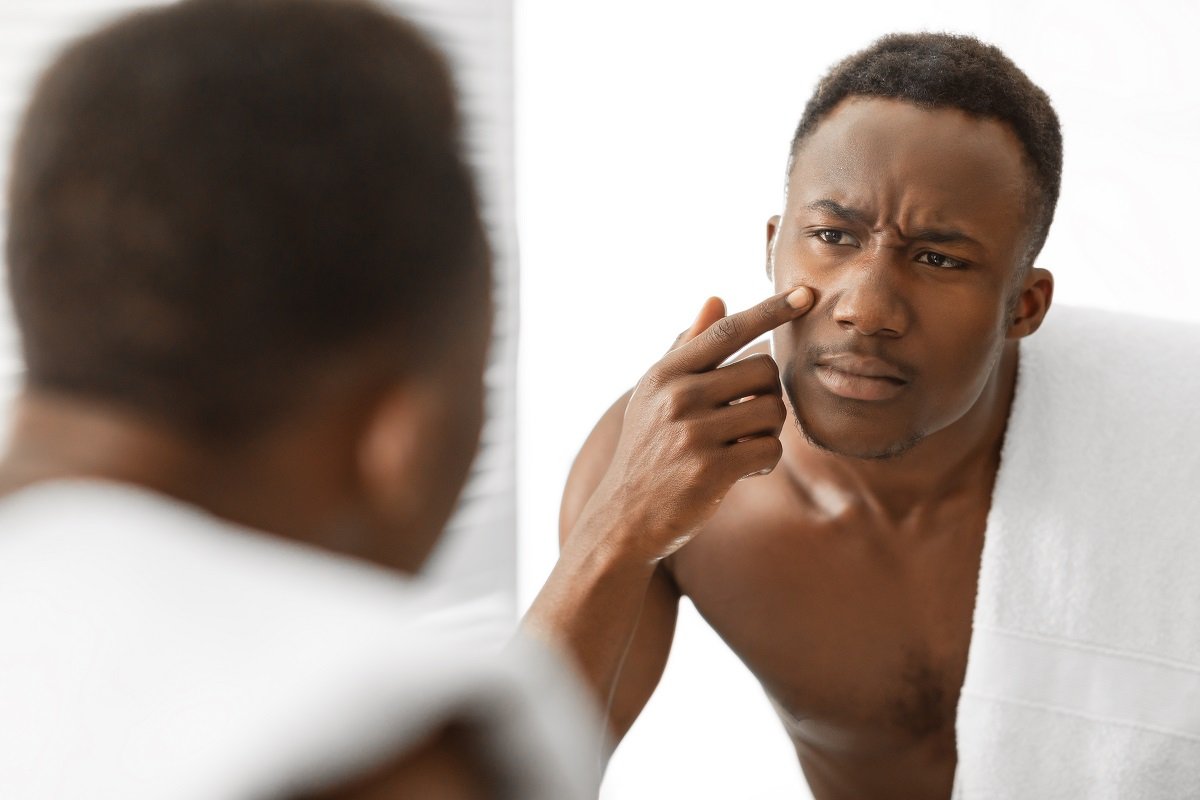It is the most serious type of acne. Cystic acne develops when a cyst forms deep under your skin. One of the causes is a combination of bacteria, oil, and dry skin cells trapped in the pores.
Cystic acne is an aggressive variant of acne. It occurs mainly on the face, generating lumps on the skin that affect aesthetics. Anyone can experience cystic acne, but it occurs in people with oily skin. This type of acne is also more common in teens, women, and older adults with hormonal imbalances. Here’s an explanation of the causes of cystic acne and how to treat it.
Stay with us!
Causes and the risk factors of cystic acne
Teenagers usually experience cystic acne. Like other types of acne, the cause of cystic acne is due to excess oil, dirt, and dead skin cell blockage of skin pores. These clogged pores invite acne-causing bacteria, namely P. acnes, to multiply and infect the surrounding skin tissue.
However, what distinguishes the cause of cystic acne from other types of acne is the role of hormones. Yes, the appearance of cystic acne is strongly influenced by the increased production of androgen hormone levels in the body. This is because this hormone stimulates the oil glands to produce sebum.
If the androgen level is more than it should be, the oil glands will become more active. When the oil glands produce more sebum, the skin pores are easily clogged and breakouts. Hormonal imbalances in the body are common among teenagers, boys, and girls.
However, apart from that, other risk factors that also affect the appearance of cystic acne are:
- Hormonal changes also cause acne, like the menstrual cycle, pregnancy, contraceptives, hormone therapy, and stress.
- Cosmetics and skincare products are oily and prone to clogging pores.
- Tend to sweat easily, so the skin’s moisture level is high and allows bacteria to grow more.
- They carry the genes of parents who are also problematic with acne-prone skin.
- The use of drugs or exposure to chemicals can make skin breakouts worse.
Ways of treating cystic acne those doctors recommend.
To consult a dermatologist is the safest way to deal with cystic acne. Doctor will help you better in determining the cause of cystic acne and its appropriate treatment. Several types of drugs are usually used to treat cystic acne and minimize the appearance of scars, namely:
1. Benzoyl peroxide
Benzoyl peroxide is one type of acne medication commonly used to treat various types of acne, whether mild, moderate, or severe.
2. Oral antibiotics
Antibiotics are also a type of cystic acne medication that is used as a way to get rid of cystic acne.
3. Ointment
The next way to treat cystic acne is with topical medications that contain retinoid.
4. Isotretinoin
Isotretinoin is an oral prescription medication formulated to treat cystic acne.
5. Spironolactone
This oral medication is generally used to treat high blood pressure and edema. However, it has been proven to be an effective treatment for acne, including cystic acne, especially for women who have acne around their jaw or lower face.
How to treat cystic acne at home?
Not only do the cystic acne treatment recommended by the doctor, but you can also apply how to treat cystic acne so that it doesn’t get worse by doing the following at-home treatments:
- Clean your face twice a day, and rinse your face using lukewarm water.
- Use cosmetics and skincare products that are labeled and oil-free.
- Use sunscreen or sunscreen.
- Do not do facial scrubs or use treatment products that irritate the skin.
- Do not touch the cystic pimple. Touching a pimple can only worsen the condition of the pimple and make it spread to other areas of the skin and risk scarring later on.
- Don’t stress. Stress can make your body produce androgen hormones, making acne worse.
- Do a healthy lifestyle, such as exercise, reducing sugar consumption, to get enough sleep.
Things to remember
Cystic acne cannot be left untreated without proper treatment. Cystic acne, for whatever reason, is problematic and requires immediate attention and care.
- Treatment of severe and cystic acne requires a dermatologist and some self-care measures.
- Medication can be effective in preventing boils and sores.
- With the help of a doctor, mild or moderate acne can be managed.
- Severe acne, in which boils and cysts develop and lead to sores, should be treated with more advanced methods. For this reason, the main drugs used to treat cystic acne are strictly controlled.

